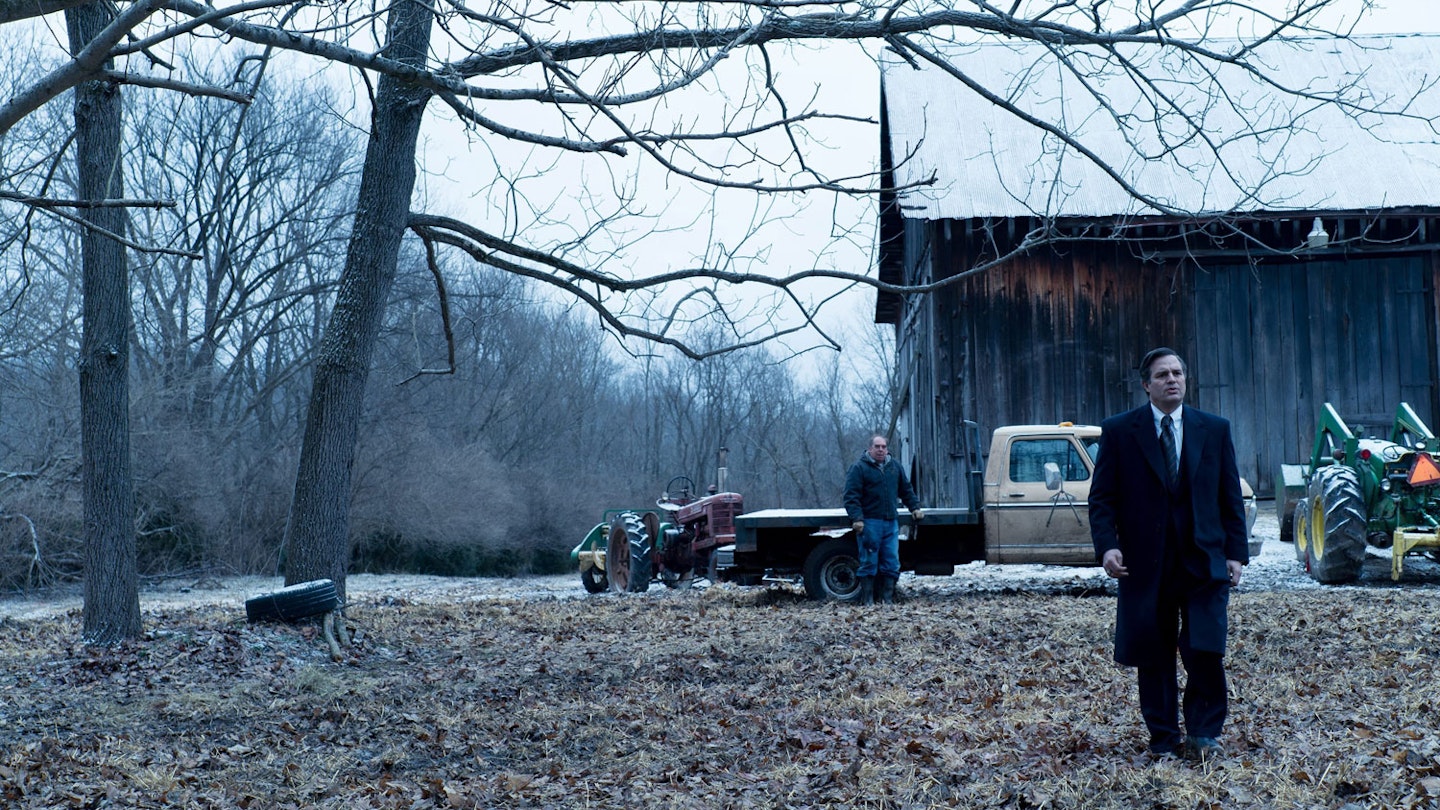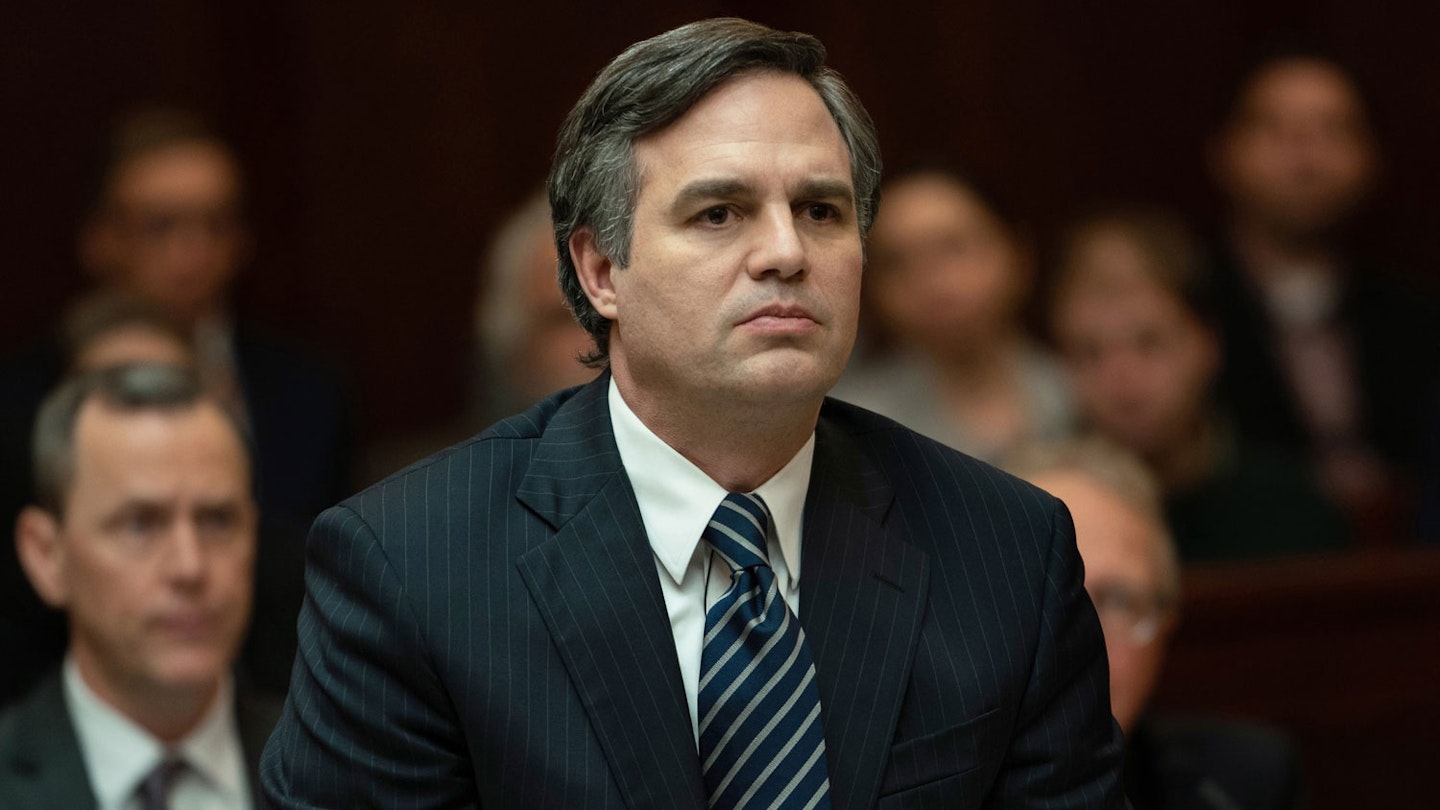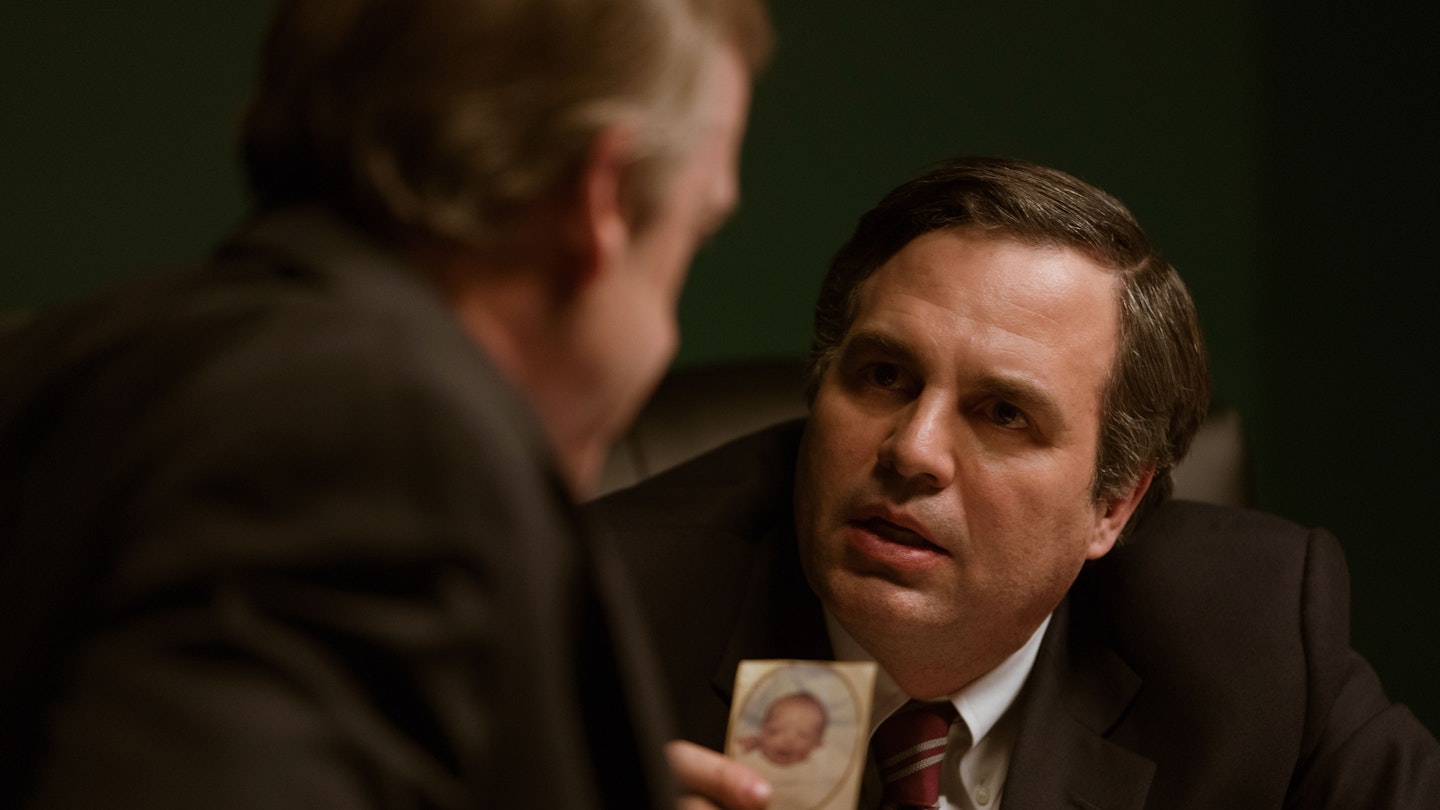At one point during Dark Waters, the camera takes the point of view of a bull waiting to charge out-of-town lawyer Rob Bilott (Ruffalo). It’s perhaps the only moment of visual flourish in Todd Haynes’ ’70s-tinged, issue-driven drama, a sober detailing of a complicated legal case that never grips as much as it should do. A passion project for Ruffalo, who also produces, it’s a slow burn of a movie (with performances to match), as one man takes on a giant corporation. If it sounds like a punch-the-air triumph-of-the-underdog story, it’s one riddled with legalese and chemical-heavy jargon, and while it’s shot through with good moments, it never manages to be completely gripping.

Dark Waters is cut from the same cloth as All The President’s Men, Silkwood and Spotlight without having the wallop of any of them. Corporate lawyer Bilott takes on huge corporation DuPont for dumping chemical waste into rivers, creating environmental hazards including the death of livestock and turning kids’ teeth black. This crusade leads him into conflict with his own law firm, who represent DuPont (Tim Robbins is the stern but fair boss), and the Parkersburg locals who resent his meddling as DuPont is the town’s chief source of employment. This results in a kind of low-energy detective story (photocopying abounds) but still with the ability to scare. When Bilott discovers that the poisonous chemical perfluorooctanoic acid (PFOA-C8) is in Teflon and thus in practically every American home, you’ll want to throw away your non-stick pans immediately.
What it lacks in octane, *Dark Waters* makes up for in both sturdiness and substance.
Out of his comfort zone, Haynes finds a dialled-down mode far away from the vibrancy of Velvet Goldmine or Far From Heaven. The world of Dark Waters is all grey skies and miserable farmlands, the fluorescent greens of research basements and the beige offices of ’80s corporate America, so effective in conveying Bilott’s malaise. Yet the low-key approach seeps into the drama, the levels of restraint diluting potential thundering confrontations into a series of chats between men in suits (the histrionics are saved for the marriage-in-crisis scenes between Ruffalo and a wasted Anne Hathaway). Mario Correa and Matthew Michael Carnahan’s screenplay also never really corrals the film’s extended timeline — the story spans seven years — into a satisfying narrative shape. The result is episodic, by turns engaging and enervated.
Still, what it lacks in octane, Dark Waters makes up for in both sturdiness and substance, helped by Ruffalo’s ability to imbue Bilott with dogged determination and commitment. Yet the performance you’ll take away is Bill Camp as the farmer who barges into Billot’s office and calls out the DuPont wrongdoing with perfectly rendered indignation. This is Dark Waters’ strongest suit: a story that is 30 years old but feels prescient in its highlighting of environmental concerns. It’s just a shame the vitality of the message is not matched by the approach.



